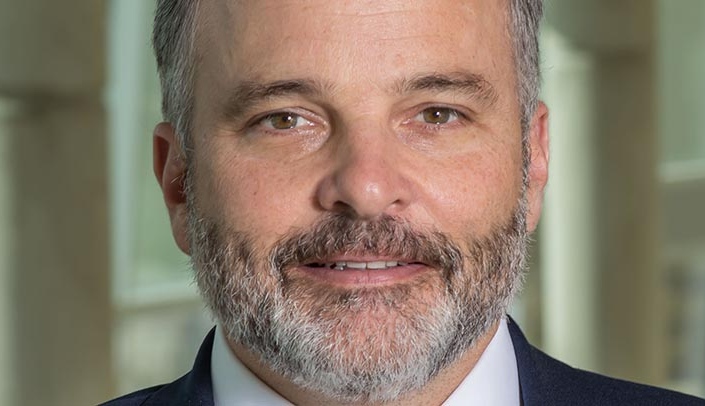James Lawler, M.D., recently joined UNMC to help grow health security efforts at the medical center.
As co-director of the UNMC Global Center for Health Security, he will coordinate activities around patient care, infection prevention and control, and training and research related to highly dangerous pathogens. He also is charged with expanding the center’s global health, health security and public health emergency preparedness portfolio — preparing our nation for pandemics and catastrophic public health events.
Dr. Lawler is one of five co-directors in the Global Center along with Chris Kratochvil, M.D., Ken Bayles, Ph.D., John Lowe, Ph.D., and Shelly Schwedhelm.
One of the things that impressed and drew Dr. Lawler to the medical center is its strong strategic vision.
“Everybody understands that the unique position Nebraska occupies lends itself to growing into the role of an international leader. It’s impressive that everyone is determined to move forward in that direction,” he said.
What does he worry about when it comes to the next threat?
“Most significantly I worry about flu,” Dr. Lawler said. “The projections regarding a 1918-like pandemic in the modern world are truly catastrophic and so to me, that’s still the biggest single threat.”
Deliberate attempts to unleash biological agents as weapons also concern him.
“The anthrax letters after 9/11 showed that a very small amount of anthrax could create significant disruption. There were several lives lost and billions of dollars in economic consequences.
“The challenge to us is to get ahead of that curve and figure out how to counteract a threat environment that’s evolving at such a rapid rate,” Dr. Lawler said. “We are striving to become a national and international resource for preparing for and responding to these types of public health events.”
Though there are a number of academic centers, government and other organizations doing research related to pandemic preparedness, biodefense, and management of patients with highly dangerous infections, he said the nice thing about Nebraska is that all of these are occurring under the same roof.
He said the training facility in the Davis Global Center currently under construction will be impressive and one-of-a-kind.
One overlooked component of response is the ability to conduct meaningful research during an outbreak response, he said.
“We’re usually retrospectively analyzing what happened. Through the Global Center, we want to empower our medical and public health responders to have that ability to learn from and to change response while it’s going on to improve our ability to save lives and alter the curve of an epidemic.”
